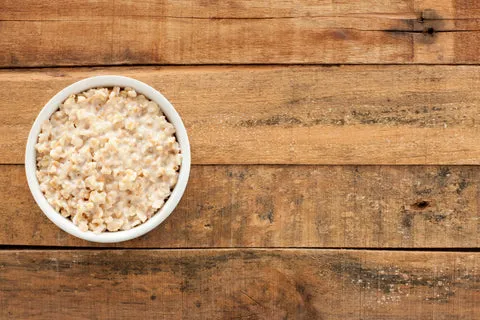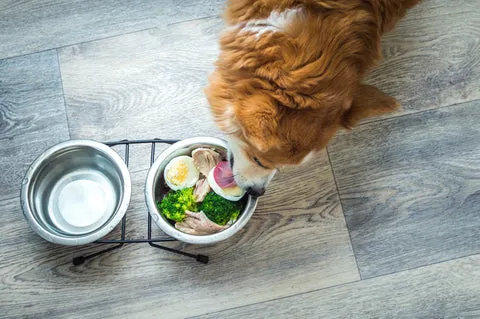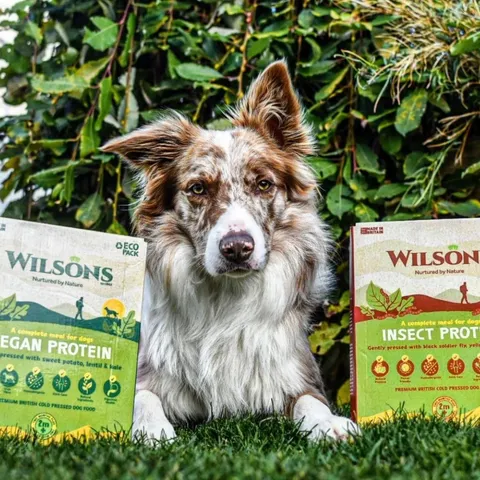When your beloved canine companion is feeling unwell, it’s natural for their appetite to waver. Just like humans, dogs can lose interest in their regular food when battling an upset stomach or general malaise. As a pet parent, knowing What Can You Feed A Sick Dog during these vulnerable times is crucial for their recovery and to help boost their energy levels. Providing the right nutrition is key to nursing them back to health.
In this guide from Dog Care Story, we delve into the best food options for dogs experiencing a variety of ailments, from upset stomachs to food sensitivities. We’ll outline easily digestible, nutritious choices that can help soothe their digestive system and support their immune function, ensuring they get the vital nutrients needed to recover. Remember, while this guide offers helpful advice, always consult your veterinarian if your dog’s condition persists or worsens. Understanding what can truly help your furry friend feel better starts with informed food choices.
Understanding Your Sick Dog’s Nutritional Needs
When a dog is sick, their body is often working overtime to fight off illness or recover from discomfort. This can lead to decreased appetite, nausea, vomiting, or diarrhea. The primary goal of feeding a sick dog is to provide easily digestible nutrients that won’t further irritate their digestive system, while still supplying enough energy for healing. A bland diet is typically recommended, focusing on foods that are simple, low in fat, and free from rich seasonings or additives. These foods help reduce the workload on their stomach and intestines, allowing their system to rest and repair.
It’s also important to ensure your dog stays hydrated, especially if they are experiencing vomiting or diarrhea. While food is essential, water intake is paramount. Offering small, frequent meals can also be more manageable for a sick dog than large portions. If your dog is reluctant to eat, gentle encouragement and presenting highly palatable, yet bland, options can make a big difference. For specific dietary concerns, such as an upset stomach, understanding what ingredients are truly safe and beneficial is vital. For more detailed insights on managing digestive issues, consider learning what can dogs eat if they have an upset stomach.
Top 10 Easily Digestible Foods for a Sick Dog
Having a few nutritious, failsafe options readily available can make a significant difference when your dog unexpectedly falls ill. These foods are generally gentle on sensitive stomachs and provide essential nutrients to aid recovery.
1. Boiled White Meat (Chicken or Turkey)
 A close-up of a brown Chihuahua with a large collar looking up attentively.
A close-up of a brown Chihuahua with a large collar looking up attentively.
Plain, boiled white meat like chicken or turkey is an excellent choice for a sick dog. It’s easy to digest, low in fat, and provides a lean source of protein essential for healing. Opt for chicken or turkey breast, ensuring all skin and bones are removed to prevent choking hazards and make it gentler on their digestive system.
Preparation:
- Rinse the meat thoroughly under cold water.
- Remove any excess fat, skin, or bones.
- Place the meat in a pot, cover with water, bring to a boil, then reduce heat and simmer for 15-20 minutes until fully cooked.
- Drain the water and cut the meat into small, bite-sized pieces for easier digestion.
- Allow to cool before serving alone or alongside white rice or approved vegetables. When considering protein sources for your dog, it’s always helpful to know what type of meat should I feed my dog for overall health.
2. White Rice
White rice is a common staple in many dog foods and a highly effective option for dogs with an upset stomach. Its blandness and easy digestibility make it a safer choice than brown rice when your dog is sick, despite brown rice being more nutritious for healthy dogs.
White rice also acts as a binding agent, which can help firm up loose stools if your dog is experiencing diarrhea, helping their digestive system return to normal.
Preparation:
- Rinse the rice under cold water.
- Add the rice to a large pan, then add two parts water for every one part rice.
- Bring to a boil, then reduce to a simmer. Cover the pan and let the rice cook on low heat for about 18 minutes, or until all the water is absorbed.
- Allow to rest and cool; fluff with a fork before serving.
3. Sweet Potatoes
Plain, cooked sweet potatoes are a fantastic choice for soothing a sick dog’s stomach and intestines. They are rich in vitamins and fiber, incredibly gentle, and provide essential nutrients like calcium, iron, and magnesium, which can support your dog’s overall health during recovery.
 Close-up of vibrant orange sweet potato slices arranged on a rustic wooden table.
Close-up of vibrant orange sweet potato slices arranged on a rustic wooden table.
Never feed raw sweet potatoes, as they are harder to digest and could exacerbate an upset stomach. Instead, peel the skins, chop them into chunks, and boil them until soft. Drain and mash them, then allow them to cool completely before serving.
4. Pumpkin
Similar to sweet potatoes, pumpkin is highly effective in easing an upset stomach and making a sick dog feel better. It’s packed with vitamins that boost the immune system and abundant in fiber, which helps regulate digestion.
 A friendly Husky dog is playfully positioned with a slice of pumpkin around its mouth, making it look like a cheerful smile.
A friendly Husky dog is playfully positioned with a slice of pumpkin around its mouth, making it look like a cheerful smile.
You can give your dog up to four tablespoons of plain pumpkin (canned or fresh, pureed) with their regular meal or alongside their chicken and rice mixture to aid their recovery. Ensure canned pumpkin has no added sugar, spices, or other ingredients like pumpkin pie seasoning, as these could worsen their stomach issues.
5. Homemade Bone Broth
Bone broth is a nourishing option for sick dogs, providing essential nutrients, minerals like sodium and potassium, and promoting hydration, which is vital for recovery. It’s low in carbohydrates and easy to digest, making it an excellent, gentle choice for dogs with upset stomachs.
 A small, light-colored puppy with soft fur is seen eagerly licking a spoon, possibly enjoying a liquid treat or meal.
A small, light-colored puppy with soft fur is seen eagerly licking a spoon, possibly enjoying a liquid treat or meal.
Preparation:
- Add beef or pork marrow bones, and chicken or turkey bones to a large cooking pot.
- Cover with a few inches of water and cook on low heat for 20-24 hours.
- Once finished, strain to remove all bones and solids, then serve the liquid. Avoid using garlic or excessive salt during cooking, as these can be harmful to dogs.
6. Baby Food
For puppies or small dogs struggling with stomach issues, stage 2 meat-based baby foods like chicken, lamb, or turkey can be a suitable feeding choice. Baby food is easy to chew and digest, often helping with stomach upset and diarrhea.
 Two fluffy, light-colored Doodle puppies are enthusiastically eating from a small metal plate on the floor.
Two fluffy, light-colored Doodle puppies are enthusiastically eating from a small metal plate on the floor.
Crucially, always check the ingredients list to ensure there are no additives toxic to dogs, such as garlic or onion powder. If you’re uncertain about any ingredients, it’s always best to consult your veterinarian for advice.
7. Fish
Fish is a fantastic source of healthy fats, particularly omega-3 fatty acids, and essential vitamins that can significantly boost your dog’s health and immune system, especially when they’re recovering from stomach issues. The strong, appealing smell of fish can also stimulate your dog’s appetite, encouraging them to eat when they might otherwise refuse.
 A fluffy Corgi dog with distinct markings is happily eating from a bowl placed on a patterned mat.
A fluffy Corgi dog with distinct markings is happily eating from a bowl placed on a patterned mat.
The best way to prepare fish for your dog is by poaching it. Similar to boiling chicken, add the fish to a pan of water, bring it to a boil, then reduce the heat and simmer for 10-15 minutes until fully cooked. Make sure to remove all bones and cut the fish into small, digestible pieces before feeding it to your dog.
8. Oatmeal
Plain, cooked oatmeal, made from rolled oats, can be very soothing for a dog’s upset stomach. It’s high in soluble fiber, which can help alleviate constipation and contains antioxidants that are beneficial for reducing inflammation in the stomach.
 A rustic image of a bowl of creamy oatmeal topped with berries and seeds, resting on a wooden table.
A rustic image of a bowl of creamy oatmeal topped with berries and seeds, resting on a wooden table.
While beneficial, moderation is key with oatmeal. Its high fiber content means that too much could potentially worsen an upset stomach. Offer it sparingly, perhaps as a small supplement to a bland meal.
9. Yogurt
 A cute, furry puppy with a white beard, possibly from licking yogurt, looks directly at the camera.
A cute, furry puppy with a white beard, possibly from licking yogurt, looks directly at the camera.
Plain, unsweetened yogurt, especially varieties rich in probiotics, is an excellent food for a dog with an upset stomach. The probiotics aid digestion and support gut health, which is vital for recovery. If your dog is constipated, plain yogurt can help regulate their digestive system. It’s also easy to source from most local stores. You can even freeze it and offer it as a cool, soothing treat. For dogs struggling with appetite, sometimes a different approach is needed, so explore what can I do to make my dog eat for more strategies.
10. Eggs
Provided your dog isn’t actively vomiting, eggs are an ideal food choice. They are gentle on the stomach and provide a great source of protein. Eggs can also offer a much-needed energy boost if your dog is feeling lethargic after an illness.
 A dog in front of a bowl filled with scrambled eggs and chopped green vegetables, looking ready to eat.
A dog in front of a bowl filled with scrambled eggs and chopped green vegetables, looking ready to eat.
Scrambled without butter or oil, or simply boiled, are the best ways to prepare eggs for your sick dog to ensure they are easy on their digestive system. However, if vomiting is still occurring, it’s best to avoid eggs completely until their stomach has settled.
What to Feed a Dog with Food Allergies or Sensitivities
If your dog frequently experiences an upset stomach or is often sick, it might be suffering from food-related allergies or sensitivities. Consulting your vet to determine the cause is always recommended. For dogs with sensitive tummies or diagnosed food allergies, traditional kibble can sometimes be problematic. Thankfully, there are many tailored options designed to support digestive health. Breed-specific dietary needs can also vary greatly, so understanding unique sensitivities, such as what fruits can shih tzus not eat or what can cocker spaniels not eat, is beneficial for all pet parents.
Here are some types of food that are often recommended for dogs with frequent stomach issues or allergies:
Cold Pressed Dog Food
Cold pressed dog food offers a notable alternative to traditional kibble, especially for dogs with food-related allergies. This form of dry food undergoes minimal processing at much lower temperatures compared to conventional kibble, which helps to retain a higher nutritional value of its ingredients.

Due to its gentle manufacturing process, cold pressed dog food is easily broken down in the stomach, making it ideal for sensitive digestive systems. It’s designed for improved all-round health, aiding digestion, and breaks down at a similar rate to raw food, allowing for easy integration into a raw diet. Many brands offer a range of flavors, including options like white fish, salmon, and chicken. Grain-free varieties are also available, perfect for dogs with grain-related allergies, providing nutrient-dense food that won’t upset their delicate stomachs.
Insect Protein Cold Pressed Dog Food
Insect protein cold pressed dog food is a complete and nutritionally balanced option created with the same gentle processing methods as other cold pressed varieties, ensuring nutritional value is retained and digestion is supported.
 A Border Collie dog sits attentively beside a bag of "Wilsons Insect Protein" dog food.
A Border Collie dog sits attentively beside a bag of "Wilsons Insect Protein" dog food.
Insects are not only a sustainable protein source but also contain more protein than chicken or beef, ensuring your dog receives all essential nutrients. Furthermore, insects are often hypoallergenic and low in purines, making them an ideal food source for dogs with sensitivities or specific meat-related allergens. Like other cold pressed options, insect protein food breaks down easily and can be fed alone or alongside raw food.
Raw Frozen Dog Food
If your dog is a picky eater or particularly sensitive to its current kibble, a switch to raw food can be a beneficial dietary change. Raw food, such as that offered by Wilsons, is typically made from natural, minimally processed ingredients and is often grain-free. This composition significantly aids digestion and can contribute to improvements in coat, skin, and overall health.
 A small, fluffy white dog, possibly a Dougal, is eating a mix of raw and cold-pressed dog food from a bowl.
A small, fluffy white dog, possibly a Dougal, is eating a mix of raw and cold-pressed dog food from a bowl.
Raw food typically comes in various formulations, such as an 80/10/10 mix (80% meat, 10% offal, 10% bone) or a 70/10/10/10 mix with added vitamins and minerals. These options allow pet owners the flexibility to mix with their own vegetables and minerals, catering precisely to their dog’s specific allergies or dietary needs, making it easier than ever to tailor your dog’s food to their unique requirements.
Nurturing Your Dog Back to Health with the Right Diet
Caring for a sick dog can be stressful, but providing the right nutrition is one of the most impactful ways to support their recovery. By understanding what can you feed a sick dog, you can offer comfort and essential nutrients that aid digestion and boost their immune system. From bland, easily digestible options like boiled chicken and white rice to specialized diets for allergies, having this knowledge empowers you to make the best choices for your canine companion.
Always prioritize your dog’s comfort and health. If they refuse to eat or their condition worsens, do not hesitate to consult your veterinarian for professional advice and treatment. A healthy diet, combined with veterinary care, will help your furry friend get back on their paws and enjoy life to the fullest. Explore various nutritious food options, including specialized diets like cold pressed or raw food, to find what works best for your dog’s specific needs and help them thrive.
